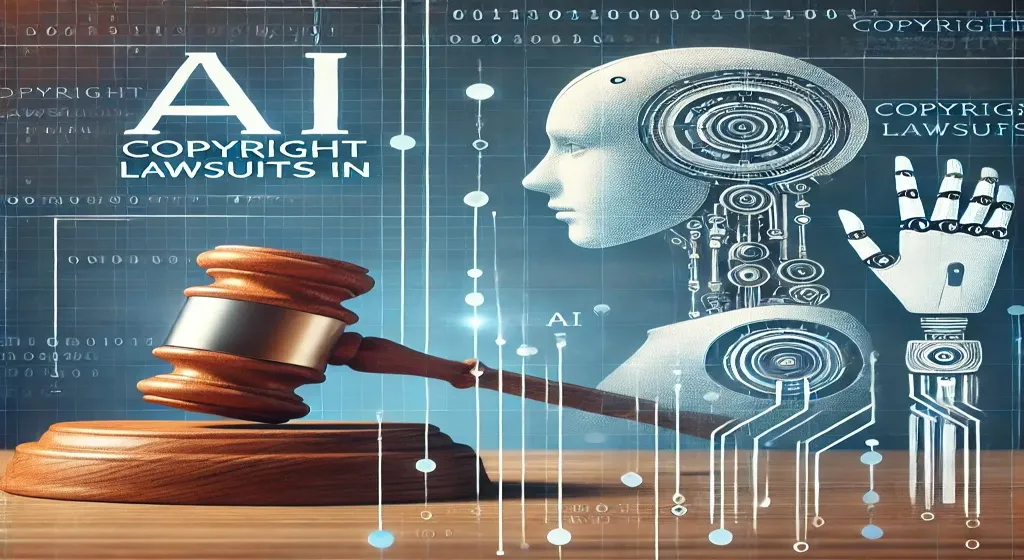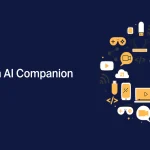The rapid advancements in artificial intelligence (AI) have sparked both excitement and controversy across industries and among the general public. As AI models like OpenAI’s ChatGPT continue to evolve, they encounter increasingly complex legal and ethical challenges. At the core of these challenges is the use of copyrighted material for training AI models. A series of high-profile copyright lawsuits against OpenAI underscores this significant issue, raising questions about intellectual property rights, fair use, and the future landscape of AI development. This article delves into the specifics of these copyright lawsuits, the arguments presented by both sides, and the potential implications for the future of AI technology.
The Core of the Controversy: The Use of Copyrighted Material in AI Training
Training data is the lifeblood of AI development. Leading tech companies such as Google, Meta, OpenAI, Anthropic, and Microsoft rely on vast amounts of data to enhance their AI capabilities and improve model performance. However, the methods by which this data is acquired have come under intense scrutiny. OpenAI, in particular, is facing multiple copyright lawsuits from publishers, authors, and other content creators who claim their copyrighted works were used without permission or compensation. These legal challenges question the ethical and legal foundations of how AI companies build their models and whether their practices align with existing copyright laws.
The Center for Investigative Reporting vs. OpenAI
One notable copyright lawsuit comes from the Center for Investigative Reporting (CIR), a news nonprofit that merged with Mother Jones and Reveal. CIR’s lawsuit alleges that OpenAI and Microsoft used copyrighted material from Mother Jones to train their GPT and Copilot AI models. According to Monika Bauerlein, CEO of CIR, OpenAI and Microsoft have been “vacuuming up our stories to make their product more powerful,” without seeking permission or offering compensation.
The copyright lawsuit highlights that “16,793 distinct URLs from Mother Jones’s web domain” were found in a list of web domains used in OpenAI’s WebText training set. This case exemplifies the broader concern that AI companies are exploiting copyrighted works to develop their technologies.
Authors and The New York Times Join the Legal Battle
The CIR lawsuit is not an isolated case. In addition to CIR, the Author’s Guild has filed a class action copyright lawsuit on behalf of two authors, claiming their books were used to train ChatGPT without permission. The New York Times has also filed a similar lawsuit, arguing that OpenAI’s use of copyrighted material without proper licensing violates intellectual property laws and undermines the economic rights of publishers and authors.
In a revealing development, court documents from the Author’s Guild lawsuit disclosed that OpenAI deleted two massive datasets used to train GPT-3, which likely contained “more than 100,000 published books.” This action suggests OpenAI’s awareness of the contentious nature of its data sources and indicates a possible attempt to mitigate legal risks by removing potentially infringing content from its training datasets.
OpenAI’s Response and Future Strategies
In response to these copyright lawsuits, OpenAI has begun to adjust its practices. The company has started signing licensing agreements with several news organizations, aiming to ensure fair use of copyrighted material and prevent future legal challenges. These agreements include partnerships with The Associated Press, The Wall Street Journal, The Atlantic, and others. These deals represent a step towards addressing the concerns of content creators, but they also highlight a significant challenge: the demand for training data far exceeds what can be covered by a few licensing agreements.
To address the data shortage, OpenAI has explored the use of synthetic data—data artificially generated by machine learning algorithms to mimic real-world scenarios without relying on copyrighted material. CEO Sam Altman has acknowledged the potential of synthetic data but also expressed concerns about maintaining data quality. At a tech conference in May 2023, Altman noted that the success of synthetic data hinges on the AI model’s ability to produce high-quality, realistic data that can still provide meaningful training for AI models.
The Legal Landscape and the Fair Use Debate
At the center of these copyright lawsuits is the debate over what constitutes “fair use” of copyrighted material. Open AI and other tech giants argue that using publicly available data for training AI falls under fair use. They claim that this practice is essential for advancing AI technology and providing societal benefits, such as improving natural language processing and enabling new applications in healthcare, education, and more. However, content creators and publishers argue that this approach exploits their work without fair compensation, infringing on their intellectual property rights and potentially undermining their economic viability.
The outcome of these copyright lawsuits could set significant legal precedents. If courts rule in favor of Open AI, it might strengthen the argument for broad fair use in the context of AI training, allowing companies more freedom to use publicly available data. Conversely, rulings against Open AI could compel AI companies to seek explicit permission and offer compensation for using copyrighted materials, potentially reshaping the AI development landscape by imposing stricter limitations on how data can be used.
Ethical Considerations and the Future of AI
Beyond the legal ramifications, these copyright lawsuits raise important ethical questions about the use of copyrighted content in AI development. As AI models become more sophisticated and integrated into various aspects of society, ensuring ethical practices in their development is crucial. This includes respecting the rights of content creators and finding sustainable ways to access high-quality training data without infringing on intellectual property.
One proposed solution to these ethical dilemmas is the increased use of synthetic data. Synthetic data can be generated to mimic real-world data, potentially reducing the reliance on copyrighted material. However, achieving high-quality synthetic data is challenging and requires advanced AI capabilities. Open AI has been exploring this approach, but concerns about data quality, authenticity, and ethical implications remain. Synthetic data must be carefully designed to ensure it reflects the diversity and complexity of real-world data while avoiding any biases or inaccuracies.
The Broader Impact on the Tech Industry
The legal battles faced by Open AI are not isolated incidents but part of a broader trend affecting the entire tech industry. As AI technology continues to advance, other companies may also find themselves embroiled in similar legal challenges regarding the use of copyrighted material for training AI models. This could lead to increased scrutiny of data collection practices and potentially stricter regulations governing the use of copyrighted content.
The tech industry’s response to these challenges will shape the future of AI development. Companies might need to invest more in developing innovative solutions for data acquisition, such as improving synthetic data generation techniques, establishing more comprehensive licensing agreements with content creators, or finding new ways to collaborate with copyright holders. Moreover, these legal challenges could encourage more transparency and accountability in how AI companies use data, fostering a more ethical approach to AI development.
Conclusion
The copyright lawsuits against OpenAI highlight a critical intersection of technology, law, and ethics. As Artificial Intelligence continues to evolve, the need for clear regulations and fair compensation for content creators becomes increasingly urgent. The outcome of these legal battles will not only impact Open AI but also set the tone for how AI development is approached globally.
For now, the tech world watches closely as these cases unfold, understanding that the future of AI and intellectual property rights hangs in the balance. Content creators, AI developers, and legal experts alike must navigate this complex terrain to ensure a fair and innovative technological future.







